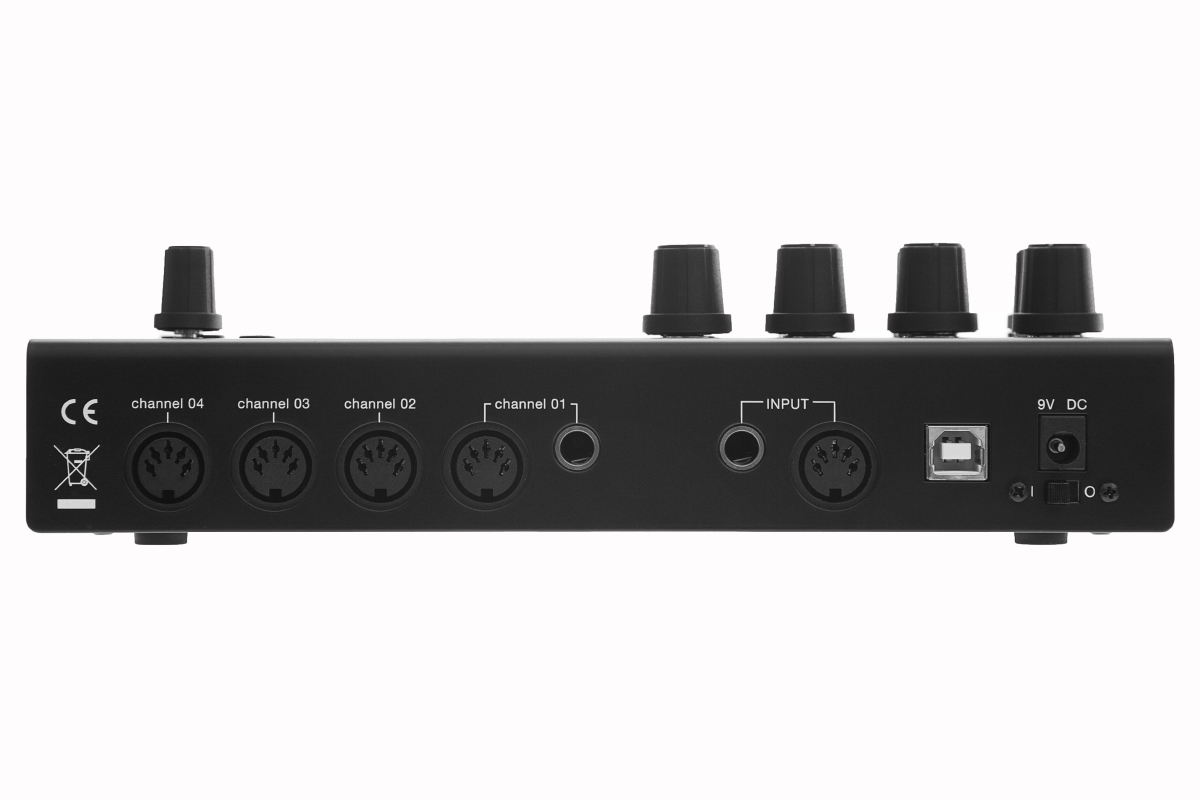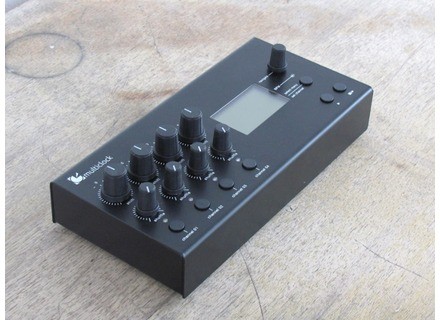

If i turn up the tempo on the acme to somewhere around 160 bpm, and then start it - the multiclock picks up the sync, shows the correct tempo, etc. So, i didn't suspect it.īut this is the weird problem. But it turns out that the problem was that i was syncing (or trying to) to the acme 4, which works with everything else.

so, given that it syncs up immediately to the octatrack, there doesn't appear to be a problem with midi clock per se. I have no problem starting the multiclock with other clocks (analog clock, and then i tried the octatrack). Some more detailed troubleshooting today.found what the issue is, but i have no idea why this is happening. Sounds like everything will run without any problems! Can't wait to get it, DAW integration with my system has always been the intention, but it's taken me much longer than anticipated to get it done. Thanks a lot for the detailed explanation. I put the output on the scope and can confirm Multiclock's reset gate goes high when I start Reaper and stays high until I stop Reaper then if goes low, and Pams starts and stops on the gate. I set the Multiclock Channel to Gate mode with Positive Polarity and on Pams, I set Run to "Gate Sets Clock State". Really a ton of options on the Multiclock side! One can also set the Start Polarity to positive or negative. Channel 1 on Multiclock is set to "Analog" Channel Mode, which has a submenu called "Start Mode" which one can set to either a Gate, a Trigger, or a Trigger that skips one click. I was just a bit concerned that somebody said it didn't stop when the run receives zero gate but hopefully it's been resolved!Ī little more detail on how this is configured in my setup: I'm using output 1 TRS from Multiclock to a Y cable to Pams Clock and Reset inputs. equivalent to sequence s1b ( posedge clk1 ) s1 # 1 1'b1 endsequence ( posedge clk1 ) s1b # 1 ( posedge clk2 ) s2Īs to why? Amybe to keep it simple as there are other ways to clearly express the intent.Thanks a lot for that. The following should be legal though ( posedge clk1 ) s1 # 1 '1b1 # 1 ( posedge clk2 ) s2 For example, if clk1 and clk2 are not identical, then the following are illegal: */ ( posedge clk1 ) s1 # 2 ( posedge clk2 ) ( posedge clk1 ) s1 intersect ( posedge clk2 ) s2 Sequence_expr # 1 `true |-> property_exprĪp1 : assert property ( ( posedge clk1 ) $rose (a ) |=> ( posedge clk2 ) b ) // equivalent toĪp1 : assert property ( ( posedge clk1 ) $rose (a ) # 1 1'b1 |-> ( posedge clk2 ) b ) // same asĪp1 : assert property ( ( posedge clk1 ) $rose (a ) # 1 ( posedge clk1 ) 1'b1 // clock flow through |-> ( posedge clk2 ) b ) /* 1800'2017 Differently clocked or multiclocked sequence operands cannot be combined with any sequence operators other than #1 and #0. Sequence_expr |=> property_expr // is equivalent to:
#ADLSOFT MULTICLOCK VERIFICATION#
Real Chip Design and Verification Using Verilog and VHDL($3)
#ADLSOFT MULTICLOCK FREE#
** SVA Handbook 4th Edition, 2016 ISBN 978-1518681448ġ) SVA Package: Dynamic and range delays and repeats Ģ) Free books: Component Design by Example See the explanation with an example that I provided in my SVA bookįor training, consulting, services: contact The nearest possibly overlapping tick of the second clock, where the second sequence begins. ( posedge slow_clk_A ) $changed (A ) |-> # 1 ( posedge fast_clk_B ) $changed (B ) // is same as ( posedge slow_clk_A ) $changed (A ) |-> ( posedge slow_clk_A ) 1 # 1 ( posedge fast_clk_B ) $changed (B ) // The sampling is at the nearest strictly subsequent tick of the second clock, // vs ( posedge slow_clk_A ) $changed (A ) |-> ( posedge fast_clk_B ) # 1 $changed (B )


 0 kommentar(er)
0 kommentar(er)
